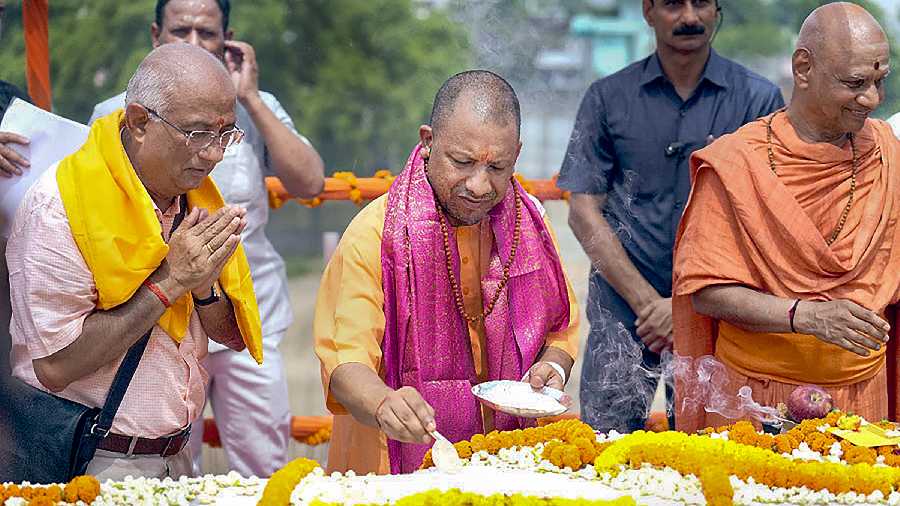Samajwadi Party MP Shafiqur Rehman Barq has accused the Uttar Pradesh government of seeing the population growth from a "particular angle", after Chief Minister Yogi Adityanath warned against programmes that lead to a "population imbalance".
The Sambhal MP told reporters on Monday night that the rapid growth in population can be effectively dealt with by paying attention to education for everyone instead of contemplating a law to check it.
The MP's statement came after the Uttar Pradesh chief minister on World Population Day on Monday said population control programmes must not lead to an "imbalance" by focusing on "native" residents while the growth rate of some community remains high, a possible reference to Muslims.
Attacking the state government, Barq accused it of seeing the growth in population from "particular angle" and alleged that it is being done to get votes in the 2024 General Election.
"Giving birth to a child is up to the almighty, he said. When a child is given by the Allah, the risk attached with him are also sent by the almighty," the MP added.
"Instead of contemplating a law to check the growth in population, the government should pay attention to education and make proper arrangements for everyone, be they are poor, big or small, he said.
"If they get complete education, the issue will be solved," Barq added.
Adityanath on Monday had said "population stabilisation" should be uniform across different sections of people, and expressed concern over the likelihood of "anarchy" at some point if there are "imbalances" in a country.
"It should not happen that the speed of population growth or the percentage of some community is high and we stabilise the population of the 'moolniwasi' (natives) through awareness or enforcement," he said.
The UP law commission had earlier submitted a draft Uttar Pradesh Population (Control, Stabilization and Welfare) Bill, 2021 to the state's BJP government in the last few months of Adityanath's previous term in office.
The proposed legislation incentivised families following a two-child norm, and some critics suggested that it targeted the state's Muslim community. The government, however, rejected the charge.











